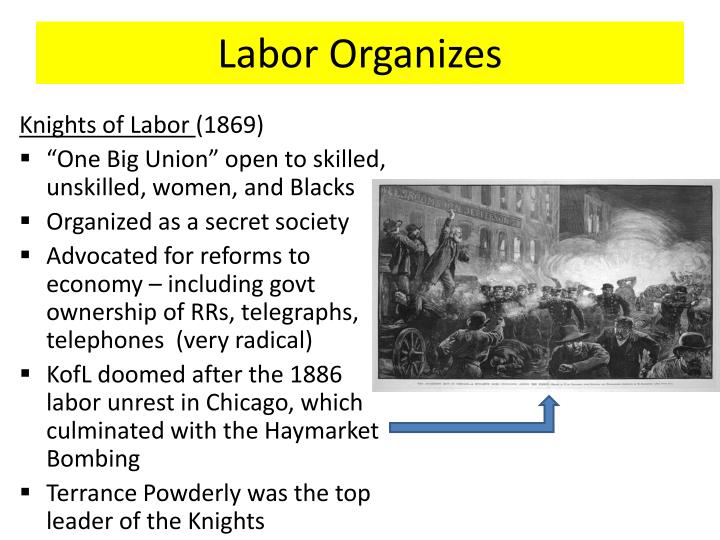In United States history, the Gilded Age was an era that occurred during the late 19th century, from the 1870s to about 1900. The Gilded Age was an era of rapid economic growth, especially in the Northern and Western United States. As American wages grew much higher than those in Europe, especially for skilled workers, the period saw an influx of millions of European immigrants.Gilded Age Politics. Politics in the Gilded Age were intense. In the years between 1877 and 1897, control of the House of Representatives repeatedly changed hands between the Democratic and Republican parties.Political infighting between the Stalwart and Half-Breed factions in the Republican Party prevented the passage of significant legislation. During this era, the political partiesWhy did Industrialization occur so rapidly during the Gilded Age? There was government support for big businesses- no regulation/rules. Industrialization led to the development of Big Businesses. Banking, RR, steel, oil, and electricity = largest industries. Monopolies and trusts emerged. Monopoly- one company controlling all of an industryPolitically, working Americans did not have much support during the Gilded Age. There were few restrictions placed on owners of big businesses, and many big business leaders had significant===== end of 5.9.2020 update, and returning to the original post on the Gilded Age and monopolies. ===== But what is much alike between that era and now is the huge gap between rich and poor or the system where political parties often benefited powerful, monied interests.
The Gilded Age & the Progressive Era (1877-1917): Brief
In the Gilded age, how did monopolies affect many small businesses? a. Monopolies forced small businesses to shut down. b. Monopolies helped small businesses grow. c. Monopolies had no effect on small businesses. d. Monopolies provided customers for small businesses.In the Gilded Age, how did monopolies affect many small businesses? Gilded Age: The second half of the 19th century is referred to by American historians as the Gilded Age.What particular challenges did women encounter during the Gilded Age (roughly 1880-1920)? If you were a working woman in 1912, and you could have voted (although in most states you could not) which caQuestion and answer In the Gilded age, how did monopolies affect many small businesses? Monopolies forced small businesses to shut down. -is how monopolies affected many small businesses In the Gilded Age.

PPTX The Gilded Age: Big Business and Labor Movement
Industrialization And The Gilded Age Industrialization and the Rise of Big Business, 1870—1900 "The electric age was ushered into being in this last decade of the nineteenth century today when President Cleveland, by pressing a button, started the mighty machinery, rushing waters and revolving wheels in the World's Columbian exhibition."in the gilded age, how did monopolies affect many small businesses? Monopolies for small businesses to shut down The government is laissez-faire when it does not interfere with business affairs and does not regulate its actionsGood: Well, they were good for business owners because the Barons would consolidate their businesses and lower expenses for them.... but then, they would eventually run the owners out of business anyway...... so it was bad. But, it inspired the creation of the Clayton Antitrust Act, which covered all of the loopholes of the Sherman Antitrust Act.Congress passed the Sherman Antitrust act at the height of what Mark Twain coined as the "Gilded Age" in American history. The Gilded Age, which occurred from the 1870s to about 1900 was a periodWhy did many refer to this time period as the "Gilded Age"? Because industrialist tycoons made all this money and spent it on mansions, themselves, etc. What impacts did monopolies and trusts have? They eliminated competition. Made it impossible for other small businesses to survive. Increase of prices. Small family owned businesses closed.
Question:
In the Gilded Age, how did monopolies affect many small businesses?
Gilded Age:
The 2nd part of the nineteenth century is referred to by means of American historians as the Gilded Age. It was a time or prosperity, but not of equivalent prosperity, as many people grew wealthy in a variety of industries, while the majority of Americans remained reasonably poor.
Answer and Explanation:
Monopolies of the Gilded Age had a stranglehold on maximum business, not simplest playing all the customers with out the competition, but in addition receiving...
See full answer under.
Topic Summary Page - Topic Summary Page

HOME Hawaii/ Tahiti Sat. 4/12/03- Williamsville, N.Y. We ...

Activism built America's infrastructure once, and can do ...

HOME Hawaii/ Tahiti Sat. 4/12/03- Williamsville, N.Y. We ...

HOME Hawaii/ Tahiti Sat. 4/12/03- Williamsville, N.Y. We ...

Alpine Adventure We had always wanted to visit Bavaria ...

Alpine Adventure We had always wanted to visit Bavaria ...

PPT - U.s. history PowerPoint Presentation, free download ...

Economic Growth in the Gilded Age US Economic History 5 ...

PPT - What were the effects of industrialization during ...

PPT - What were the effects of industrialization during ...

PPT - The Gilded Age (1878-1889) and The Progressive Era ...

PPT - The Gilded Age (1878-1889) and The Progressive Era ...

O BIBLIOTECÁRIO DO BORDEL: INTRODUCTION [Pg i] BY HEYWOOD ...
![O BIBLIOTECÁRIO DO BORDEL: INTRODUCTION [Pg i] BY HEYWOOD ... O BIBLIOTECÁRIO DO BORDEL: INTRODUCTION [Pg i] BY HEYWOOD ...](https://i0.wp.com/2.bp.blogspot.com/-4WdV3-hqvd0/UVXXqV-RiEI/AAAAAAAAAFE/Ea9CzAwXGzE/s80/0synapismosforwardmarchoumarx.jpg)
A Cautionary Tale For Tech Giants From The Age Of Railroads

O BIBLIOTECÁRIO DO BORDEL: INTRODUCTION [Pg i] BY HEYWOOD ...
O BIBLIOTECÁRIO DO BORDEL: INTRODUCTION [Pg i] BY HEYWOOD ...
![O BIBLIOTECÁRIO DO BORDEL: INTRODUCTION [Pg i] BY HEYWOOD ... O BIBLIOTECÁRIO DO BORDEL: INTRODUCTION [Pg i] BY HEYWOOD ...](https://i0.wp.com/the-artifice.com/wp-content/uploads/2014/04/417px-Edward_Bellamy_-_photograph_c.1889-160x230.jpg)
Election Panic! Political Cartoons from American History ...

PPT - What were the effects of industrialization during ...

The Gilded Age Robber Barons and Reform 44 (1) (1).doc ...

J. P. Morgan - Wikipedia

0 Comment to "How The Gilded Age Led To The Progressive Era - HISTORY"
Post a Comment